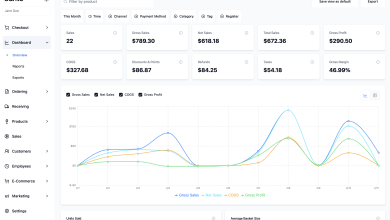Artificial Intelligence (AI) is no longer just a buzzword; it’s a catalyst for transformation across industries. From healthcare and finance to retail and logistics, AI is helping organisations innovate faster and operate smarter. But one area where AI’s impact is only beginning to be recognised is qualitative research—the process of understanding the “why” behind human behaviour.
For decades, businesses have relied on interviews, focus groups, and surveys to uncover customer motivations. These methods provide unparalleled depth, but they are slow, expensive, and difficult to scale. Today, AI-powered qualitative research is changing the equation—delivering insights with both depth and speed.
Why Qualitative Research Matters in the AI Era
While quantitative data shows us what customers are doing—clicks, purchases, churn rates—it doesn’t reveal the motivations behind those actions. Qualitative research answers the critical questions:
- Why do customers prefer one feature over another?
- What emotions shape their experience with a brand?
- How do users describe pain points in their own words?
This kind of feedback is essential for:
- Product innovation: Identifying unmet needs.
- UX design: Enhancing usability.
- Marketing: Building emotionally resonant messaging.
In the era of customer-centric business models, organisations that master qualitative insights can build stronger relationships and more successful products.
The Challenges of Traditional Qualitative Methods
Despite its importance, traditional qualitative research has always been constrained by practical barriers:
- Small Sample Sizes
- Focus groups and interviews typically involve a limited number of participants.
- Insights may not be representative of larger audiences.
- Focus groups and interviews typically involve a limited number of participants.
- Time-Consuming Analysis
- Transcribing and coding responses can take weeks.
- Insights arrive too late for agile decision-making.
- Transcribing and coding responses can take weeks.
- High Costs
- Recruiting participants, hiring moderators, and managing logistics add up quickly.
- Recruiting participants, hiring moderators, and managing logistics add up quickly.
- Human Bias
- Interpretation of qualitative data can vary depending on the researcher, introducing subjectivity.
- Interpretation of qualitative data can vary depending on the researcher, introducing subjectivity.
For organisations competing in dynamic markets, these limitations make it difficult to act on insights at the speed required.
AI-Powered Breakthroughs in Qualitative Research
AI is overcoming these challenges and unlocking new possibilities. By applying Natural Language Processing (NLP), machine learning, and automation, businesses can now:
- Automate Transcriptions
- Voice interviews and focus groups can be transcribed in real time with near-perfect accuracy.
- Saves hours of manual effort and reduces human error.
- Identify Themes and Patterns Automatically
- AI clusters responses into meaningful themes without human intervention.
- Recurring topics and customer concerns emerge quickly.
- Sentiment and Emotion Analysis
- Algorithms interpret not just words but tone and context.
- Provides richer insights into customer attitudes.
- Real-Time Insights
- Large volumes of qualitative data—thousands of survey responses or interviews—can be analysed within hours.
- Fits perfectly with agile product development cycles.
- Breaking Language Barriers
- AI translates and processes multilingual data, enabling global research at scale.
- AI translates and processes multilingual data, enabling global research at scale.
This shift allows companies to achieve both depth and scalability in ways that were previously impossible.
For a deeper dive into specific techniques, here’s a detailed guide to the most effective AI-powered qualitative research methods that are shaping 2025.
Industry Applications of AI-Driven Qualitative Research
- SaaS and Technology
- Product teams use AI to analyse user feedback continuously, accelerating feature iteration.
- UX researchers gather insights across hundreds of beta testers, rather than relying on small focus groups.
- Healthcare
- Patient interviews can be transcribed and analysed instantly, revealing critical themes about care quality, accessibility, and trust.
- AI ensures feedback is processed quickly enough to impact treatment strategies.
- Retail and E-Commerce
- AI processes customer reviews, chat transcripts, and support tickets to uncover shopping pain points and satisfaction drivers.
- Retailers can adjust product offerings or improve online experiences faster.
- Education
- Student feedback from online platforms can be categorised and analysed in real time.
- Institutions can design more effective, personalised learning experiences.
Ethical Use of AI in Research
While the benefits of AI are significant, businesses must also prioritise ethics and transparency.
- Informed Consent: Participants should know when AI systems will analyse their data.
- Data Privacy: Encrypted storage and compliance with global standards (GDPR, HIPAA, etc.) are essential.
- Bias Monitoring: AI models should be regularly reviewed to prevent amplifying stereotypes or overlooking minority voices.
Balancing innovation with ethical practices fosters trust among participants and ensures that research outcomes remain credible.
Human + AI Collaboration: The Future of Research
The real promise of AI in qualitative research is not about replacing humans—it’s about augmenting them.
- AI excels at: handling scale, speed, and detecting hidden patterns.
- Humans excel at empathy, context, and interpreting nuance.
Together, they create a new model of research that combines data-driven insights with human understanding. This hybrid approach ensures that organisations don’t lose the human touch while scaling their research efforts.
Conclusion
Qualitative research has always been vital for understanding customers at a deeper level. But in a world where speed and agility are non-negotiable, traditional methods can no longer keep up.
AI is changing that. By making qualitative data collection and analysis faster, scalable, and more accurate, businesses can now act on insights in real time. Those that adopt AI-powered qualitative research today will be better equipped to design customer-centric products, craft meaningful experiences, and stay ahead of the competition.
The future of qualitative research isn’t just about asking better questions—it’s about using AI to unlock better answers.




